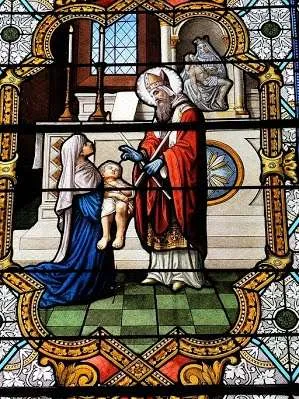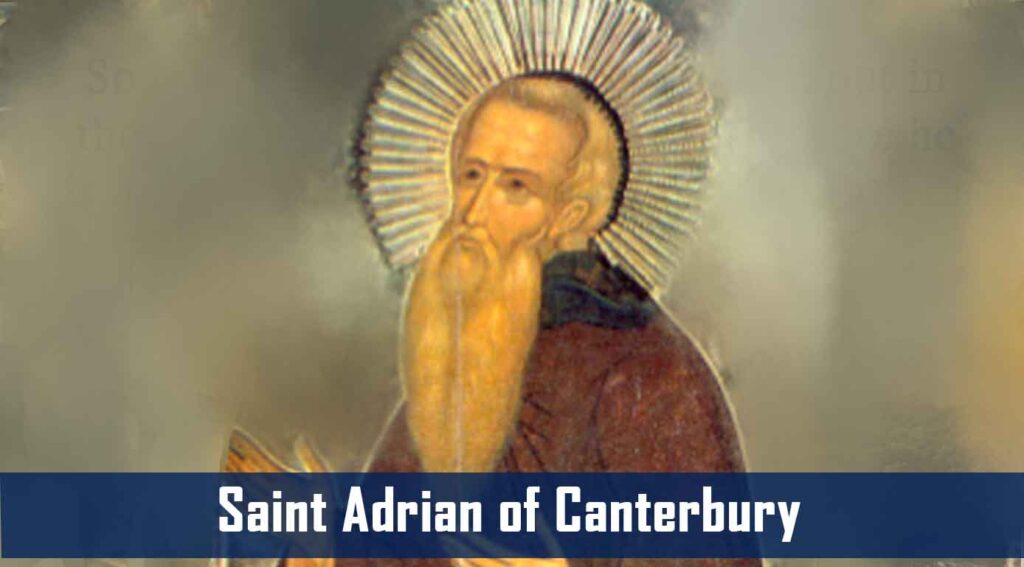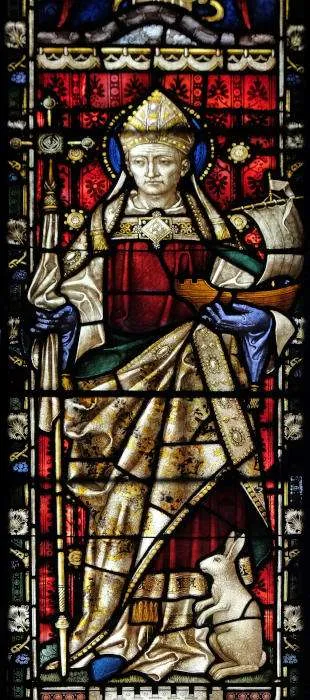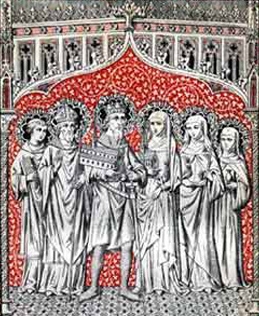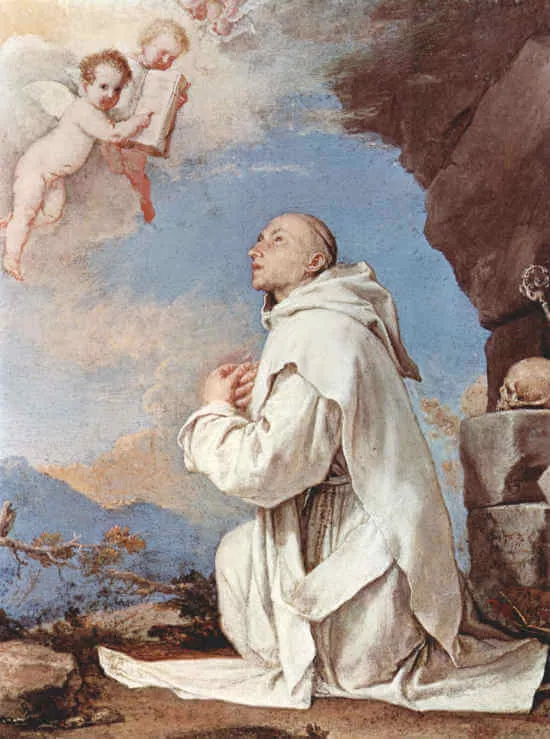Patron Saint of illnesses of the throat and other illnesses, wool workers, animals, bricklayers, bakers, farm workers; Pre-Congregation canonization
From 1346 to 1353, a bubonic plague commonly referred to as “Black Death” ravaged Europe, Asia, and North Africa. It was the most deadly pandemic in human history, with conservative estimates of its deadly toll reaching higher than 25 million people. Almost half of the people in Europe died in this pandemic.
During that plague, many Catholics prayed fervently. Out of that chaos, a new devotion to the “Fourteen Holy Helpers” emerged. Those holy helpers were fourteen saints who were believed to be powerful intercessors, especially to cure illness. Among those fourteen is today’s saint.
Very little is known about Saint Blaise. The earliest mention of his life was not written until about 200 years after his death, by the medical writer Aëtius Amidenus, who spoke of the intercessory power of Saint Blaise to help unlodge objects stuck in the throat.
The slightly more detailed Acts of Saint Blaise was written about 400 years after his death. Whether or not the stories written of him are true, what is certain is that the faithful have devoutly sought his intercession for centuries, and that practice continues today in the form of the blessing of throats on his feast day.
Legend has it that Blaise was an excellent physician in his hometown of Sebaste, Armenia, modern-day Silvas, Turkey. As a youth, he studied many of the great philosophers. When the Bishop of Sebaste died, Blaise was chosen as the new bishop by the popular acclaim “of all the people.”
Blaise was said to be a man of great faith and virtue, caring for his people in both body and soul. Many came to him for physical healing as a physician but also received many miracles. Many others came to him for spiritual healing, which was imparted by his deep faith. According to that same legend, even animals would listen to him and obey his commands, and he would heal them of ailments.
In the year 313, the co-ruling Roman Emperors, Constantine I and Licinius, jointly issued the Edict of Milan which established religious toleration throughout the Roman Empire. However, the Acts of Saint Blaise states that in 316, the Governor of Cappadocia, acting on an order by Licinius, began to arrest and kill Christians. Bishop Blaise is reported to have been among those arrested.
While on Blaise’s way to jail, the legend continues that a boy was choking on a fishbone, and the boy’s mother sent her son to Blaise for his prayers. Bishop Blaise miraculously cured him on the spot. Another story relates that on that journey to jail, a woman begged him to save her pig who had been seized by a wolf. Bishop Blaise ordered the wolf to release the pig and the wolf obeyed. Out of gratitude, the woman brought Blaise two wax candles to give light to his prison cell.
Despite these miracles, the governor insisted that Bishop Blaise renounce his Christian faith, which Blaise refused to do. Therefore, at the governor’s order, Blaise was ripped apart by metal combs used to comb wool and then beheaded.
Today, Saint Blaise is the patron saint of wool combers because of the legend of his torture and death by the metal combs. He is patron saint of animals because of his alleged authority over them. He is the patron saint of diseases of the throat and other illnesses because of the story that he healed the boy with a fishbone stuck in his throat, was a physician, and miraculously healed many others of their ailments. Two wax candles are used to bless throats today because of the legend of the candles brought to him in jail by the grateful woman.
As we reflect upon these stories that have been passed down through the years, perhaps the most important story to reflect upon is the story of faith that so many people have had for many centuries in the intercession of Saint Blaise.
From the people who might have sought his prayers at the time of his ministry, to those who sought his intercession during the Black Death centuries ago, to the priestly blessings today at Mass using candles to bless throats, God has used Saint Blaise in ways that he could have never foretold. This should reassure us that God wants us to turn to the intercession of the saints in our time of need.
Though God is fully capable of directly answering our prayers, He often chooses to use the mediation of others to impart His grace. Reflect upon your own devotion to Saint Blaise and all the saints. Seek out your special patron. Entrust your prayers to him or her and know that when you do, your patron offers you and your needs to God.
Source: https://mycatholic.life/saints/saints-of-the-liturgical-year/february-3-saint-blase-bishop-and-martyr/

